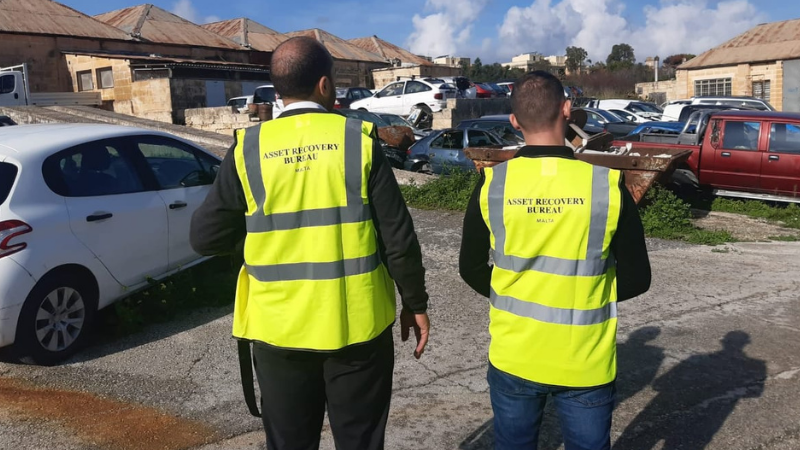The authority set up to enforce court-ordered asset freezes against persons suspected of a crime cannot monitor or surveil their expenditure, raising questions on the effectiveness of court-imposed restrictions which cap the annual spending of the accused to €14,000.
Police officials from the Asset Recovery Bureau and criminal lawyers told The Shift that locally, asset freezes are used for the court to take a detailed “snapshot” of the accused’s assets. This record is used for their later confiscation if they are determined by the court to have been obtained via the proceeds of crime.
Questions on the effectiveness of Malta’s court-ordered asset freezes were raised following The Shift’s report on alleged fuel smuggler Gordon Debono’s regular use of his 66-foot yacht.
Since 2020, Debono, his wife, and more than a dozen of their companies have been subject to an asset freeze and limited to spending just €13,976.24 per year. It remains unclear how Debono’s yacht, which costs around €350/hour to run at half power, not taking into account other costs such as insurance, tax, and staff, is being financed.
The freeze and spending limitations were issued in court proceedings charging Debono with money laundering for his alleged connection with a fuel smuggling ring alongside Darren Debono (no relation) and Fahmi Bin Khalifa. The operation reportedly earned the group over €30 million.
In general comments to The Shift, Asset Recovery Bureau officials said, “Monitoring or confiscation of an accused’s assets while they are not yet found guilty is not dictated by law.”
They said such actions would imply the presumption of guilt for those charged, violating their human rights.
Lawyers who spoke to The Shift said while a court freeze meant banks would not process the accused’s funds, money derived from companies owned by the accused but not subject to the freeze could still be used. Subjects could similarly circumvent the freeze through cash payments, taking advantage of the lack of surveillance.
They described the current limit court-imposed limit of €13,976.24 per year, which has not changed since 1994, as “miserable”.
In 2019, ahead of Debono’s arraignment in Malta, The Shift revealed how the Maltese courts facilitated the movement of €1.5 million to a Dubai company belonging to Debono’s wife. The funds were transferred despite sanctions from the US Treasury Department in 2017.
That Dubai company, International Properties and Investment Ltd. is not included in the Maltese courts’ freezing order. The funds were sent from a Belize company, Oil & Ship Consultancy Limited, of which Debono is the managing director, similarly not included in the freeze.
Public Asset Recovery Bureau records show that Debono, his wife, and their companies under the asset freeze were granted one variation earlier this month: €494.98 was approved for the renewal of an insurance policy and road licence.
Persons under court-imposed asset freezes subject to similar conditions include Debono’s alleged partner in crime Darren Debono, Karl Cini, Brian Tonna, Nexia BT and related companies, Zenith Finance and its directors, Adrian Hillman, and Yorgen Fenech, among others. Public records span back to 2009.














